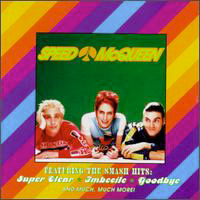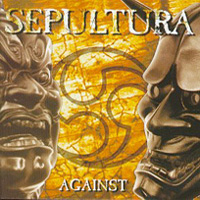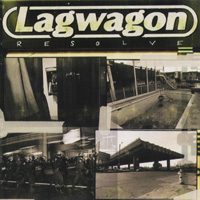 Neil Gaiman
Neil Gaiman
An interview with Neil Gaiman
photo and story by Margaret Smith
It’s a chilly December morning for those gathered outside the Comicopia bookstore in Kenmore Square. The chill appears to be barely felt by those who have gathered patiently outside in waifish black coats, Dickensian black hats, and wraps of black lace. Some use their waifish black garb to shelter a bouquet of roses.
A few years ago, the casual observer might have thought these devotees had ponied up to see Stevie Nicks. They possess the same lovelorn elegance of the Welsh Witch Queen’s fans, and it’s little wonder. Rock star quality is something not many writers have.
But Neil Gaiman, the man these dark souls are here to see, does. And he does so in the way that Stevie Nicks did in her heyday, through creations which are benevolent and pretty, but not without their darkness. Gaiman’s success as the creator of the DC/Vertigo Sandman series has earned a secure place alongside Anne Rice and Trent Reznor in the neo-Gothic pantheon.
Gaiman himself does not quite fit the stereotype. He is cheerful, despite a morning of being carted around lost by a bewildered driver through the labyrinthine streets of Boston. As he and McKeon stumble in to favor fans with autographs and friendly chat, he obligingly takes off his characteristic sunglasses for a photograph.
Gaiman and artist David McKeon were here this morning to promote the release of Mr. Punch, Gaiman’s comic book tale which bears witness to the real and imagined horrors of childhood.
“When I was a kid, whenever I’d read books that were written by adults about childhood, I would find myself obscurely disappointed or even irritated. I would think, what are these people talking about? I remember when I was twelve, I read Dandelion Wine, which is about being twelve. The first story talks about the first pair of tennis shoes of summer. I thought, this is bullshit. Complete and utter bullshit. I am twelve, and I have no desire to put on my white tennis shoes and bound off forever. So I really did want to try to convey the real experience [with Mr. Punch].”
Perhaps no single Gaiman character, however, has captivated his audience as has Death, the older, kinder and infinitely more personable sister to Dream of the Sandman series. Whether good-naturedly chiding her brother for his perpetual gloom – or prancing about in her nifty spandex tops and gargantuan hair – the affable, pallid sprite has won the ardor of many a lost soul who may lose sight of the fact that, uh, she’s a bunch of lines.
Death: The High Cost of Living, Gaiman’s three-part series on his most iconoclastic character, left Gaiman himself with mixed feelings about the series’ outcome. “I had wanted it to be even longer and even more meandering. I just wanted to meander more, to get more of the feeling of the back and forth of a day. Essentially, to get the rhythm of what it means to have a day.”
Will there be another Death series to fulfill Gaiman’s original hopes and the appetites of the enamored? Yes, he said, and its working title is Death: The Time of Your Life.
Fans of his comics have also caught on to Gaiman’s penchant for prose. Gaiman is the author of a handful of books, including the critically acclaimed Good Omens, co-written with Terry Pratchett, and Angels and Visitations, a compilation of short fiction, poetry, and sundry pieces.
“I’ve done probably about three or four short stories since Angels and Visitations came out [December, 1993]. I figure when the Sandman series is over, I will probably do a novel, because at that point, I will probably have enough headspace to do a novel.”
Both in his comic book stories and in his prose, Gaiman often strays into the territory of Judeo/Christian myths. His stories abound with cameos of archangels, Adam and Eve, and the like.
Unlike many of his contemporaries, Gaiman never chooses the tactic of blasting Christendom as a sitting duck. “I love myth, and I love religion. I’m fascinated by the symbology of religion, of belief. The Judeo/Christian one is a wonderful one because it’s almost completely uninspected. It’s either taken for granted, or it’s ignored. Nobody goes back and looks at it.”
Gaiman calls the recent trendiness of angels “really sick,” explaining, “I don’t trust angels. I think they’re a wonderful idea, but I wouldn’t trust the bastards for a second.”
Gaiman does not have much kinder words for those who have embraced Witchcraft as a decoration, or as a kneejerk reaction to Christianity. Of those who sport flashy pentagrams and go about with “Blessed Be” upon their lips in a way which causes long-time pagan practitioners to roll their eyes heavenward: “Your ‘twit pagans’ are very distinct from real pagans. With your ‘twit pagans,’ it’s as if somebody told them, ‘This is what it means to be a pagan, and by the way, we’re part of a tradition that goes back millions of years.’ I think it’s because people want easy solutions.”
Just because a man has scorn, however, doesn’t mean he always has pride. Thus came the scandal Gaiman says he now officially denies, but under duress will still explain: His biography of Duran “her name is Rio and she dances on the sand…” Duran. Gaiman wrote this book in the early ’80, when he still had to do silly things like pay the rent. “I was asked by a book publisher if I wanted to do some rock biographies. I said, ‘Will you pay me money?’ and he said, ‘Yes, 2,000 pounds.’ He said, ‘You can have Barry Manilow, Def Leppard, or Duran Duran.’ Duran Duran had only done three albums at that point and I figured, if I did Barry Manilow, I’d have to listen to sixteen.”
The biography, which Gaiman said “was an immediate bestseller,” is now “terrifyingly rare, and terrifyingly expensive. I no longer have a copy. But when the publisher was just about to go back to press with it, he went out of business. So I never did get my royalties, but I did get my advance.”
Over a decade later, with the biography safely behind him and the bills adequately paid, the prolific Gaiman has garnered an audience well beyond the limits of his homeland. Of America, Gaiman said, “It’s a completely alien culture where they speak a language I can understand. Which I think is wonderful. I mean, when you go to France, they’re incomprehensible. They’re speaking French all the time. Whereas in America, you can walk around in this wonderful, completely alien culture.”
Gaiman describes his native England as a place with “a grumpiness towards success. The English really do not like successes. They really like people who have almost been successful. They like rooting for underdogs. It’s kind of fun to be here in a country where you can be successful and have that be a good thing.”
Certainly a good thing for Gaiman.



